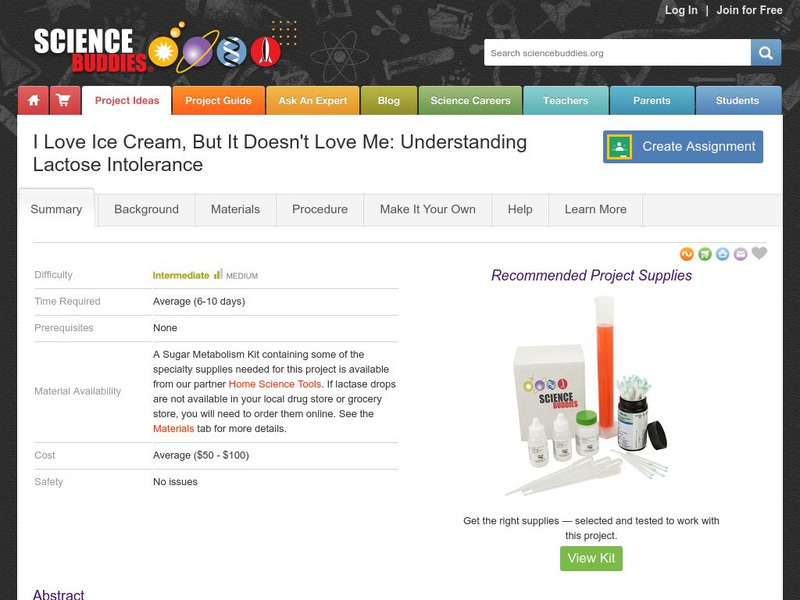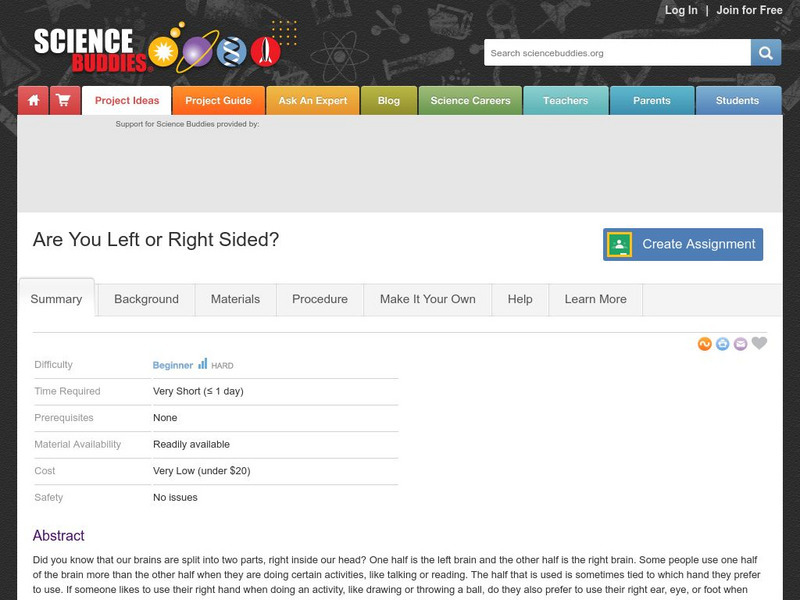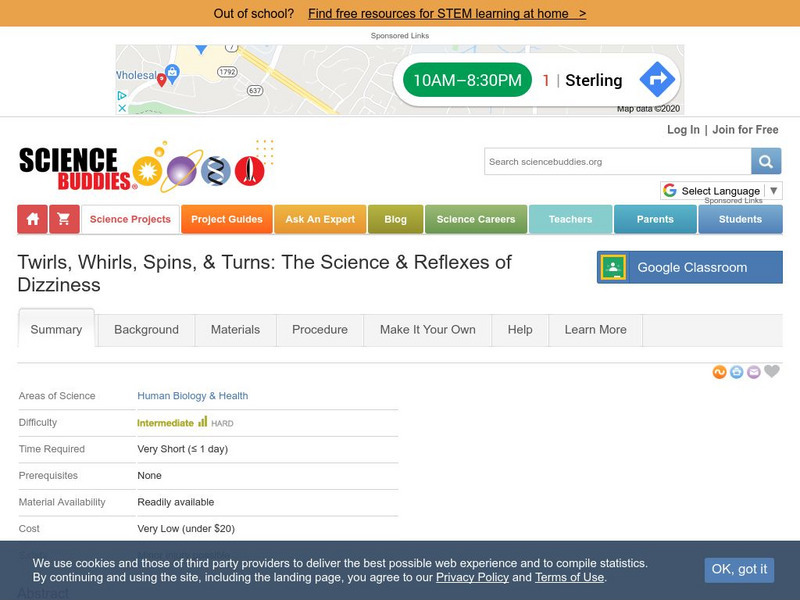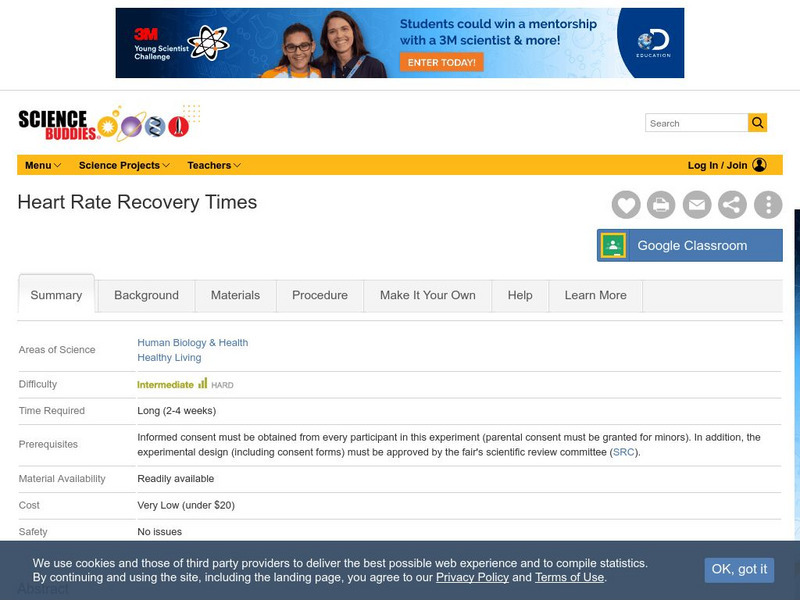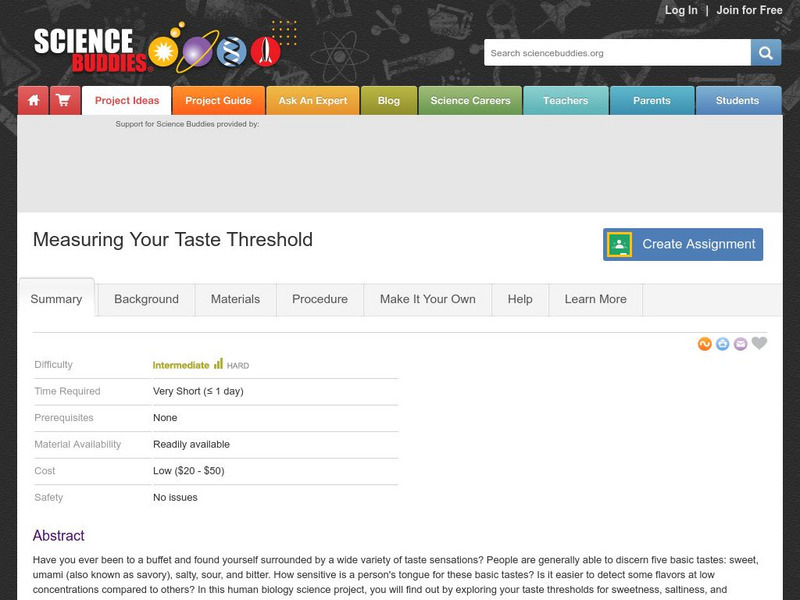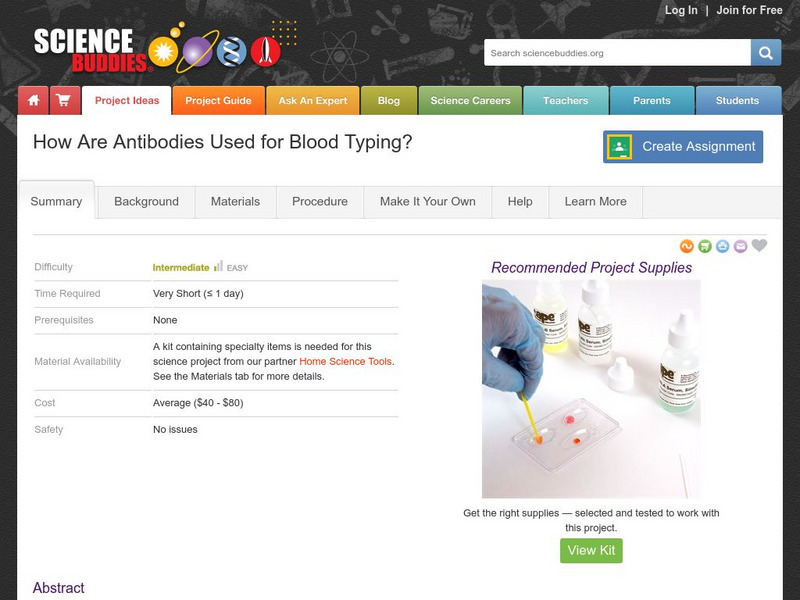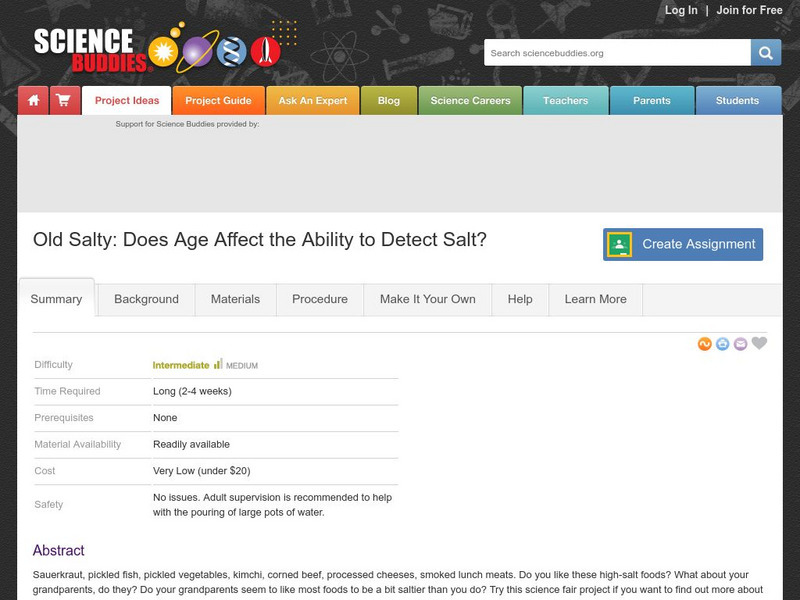Science Buddies
Science Buddies: Can Your Body Temperature Tell the Time of Day?
If you have ever had to adjust to a new time zone, you have noticed that it takes a while before you start to feel normal again. By shifting your sleep and activity schedule, you have altered the pattern of your body's circadian rhythms....
Science Buddies
Science Buddies: I See a Full Moon Rising, and Shrinking, or Do I?
The moon appears bigger at the horizon just as it is rising over the treetops, than it does later in the evening when it is overhead. This is because our perception of its size changes based on where it is in the sky. In this human...
Alabama Learning Exchange
Alex: As Large as Life a Poster of a Human Body System
This is a student led exploration of the systems of the human body through art and self-expression. Groups will cooperatively develop a poster, the size of a fifth-grade student, and will accurately depict the assigned system of the...
Science Buddies
Science Buddies: I Love Ice Cream, but It Doesn't Love Me: Lactose Intolerance
Pizza, milk shakes, and ice cream sundaes all contain dairy products, therefore they cannot be eaten by the majority of people around the world. Dairy products contain the sugar molecule lactose, and the majority of people on the planet...
Science Buddies
Science Buddies: You Are What You Eat!
Thinking about improving your sports performance? Want to help friends and family make the most of their physical fitness activities? One factor to consider is food. Whether you realize it or not, what you eat does change your body. It...
Science Buddies
Science Buddies: Do You Love the Taste of Food? Find Out if You're a Supertaster
To supertasters, the flavors of foods are much stronger than to average tasters. This can explain why some people are more picky about their food than others, because they experiences tastes in a much stronger form. Find out if you are a...
Science Buddies
Science Buddies: Now You See It, Now You Don't! Test Your Peripheral Vision
The survival of our ancient ancestors depended on their ability to use peripheral vision to find prey and to avoid predators. Almost everything we do-from riding a bike, to dribbling a basketball, to reading a book-depends on peripheral...
Science Buddies
Science Buddies: Deep Knee Bends: Measuring Knee Stress With a Mechanical Model
Prosthetic limbs and artificial joints can help people with disease or injury lead a normal life. Sports medicine or physical therapy is also an area that relates to this experiment. Either way, this project serves as a good match if any...
Science Buddies
Science Buddies: Are You Left or Right Sided?
Our brains are split into two parts, right inside our head. One half is the left brain and the other half is the right brain. Each side of your brain controls different parts of your body and most people are more dominant controlling one...
Science Buddies
Science Buddies: Twirls, Whirls, Spins, & Turns: Reflexes & Dizziness
Tilt-A-Whirls, Merry-Go-Rounds, Spinning Tea Cups. Just the thought of these rides is enough to make someone dizzy, or queasy. Learn about spins, turns, and the mixed signals that fire in our brains when the sensation of dizziness takes...
Science Buddies
Science Buddies: Project Ideas: Don't Get Burned: Uv Index Throughout the Day
Sun tanning has a bad rap right now. Use a personal ultraviolet monitor to measure the UV index to prevent getting a sunburn. With this science fair project you will create a chart showing the UV ray measurement at different times of the...
Science Buddies
Science Buddies: Are Your Eyes Playing Tricks on You?
Yogi Berra said "You can observe a lot by just watching." In this human biology science fair project, you will observe how your eyes perceive color by watching afterimages. Afterimages are what you see after staring at an object for...
Science Buddies
Science Buddies: Heart Rate Recovery Times
After exercise, your heart rate increases, this is normal for everyone. However this experiment asks whether the recovery time for a heart's beating rate is faster for people who get regular exercise versus those that do not.
Science Buddies
Science Buddies: Breath of Life: Does Exercise Increase Vital Capacity?
When you take a deep breath, the amount of air you are capable of holding within your lungs, is known as your lung capacity. It is not the same for everyone. This lab asks you to find out if it is possible to increase your lung capacity...
Science Buddies
Science Buddies: Measuring Your Taste Threshold
Some people are more susceptible to flavors than others. This experiment asks you to test your threshold for the three types of taste our tongues are capable of experiencing: salty, sweet, and sour.
Science Buddies
Science Buddies: How Are Antibodies Used for Blood Typing?
The human immune system has various ways of responding to an infection caused by bacteria or viruses. Our bodies produce proteins (antibodies) that are highly specific for the infectious agent as a part of our "humoral" immune response....
Science Buddies
Science Buddies: A Day in the Life of Your Heart
Heart rates can be determined by the amount of physical activity your body is engaging in. The more physically active you are, the faster your heart beats. You can measure the rate your heart is beating by taking your pulse. This science...
Science Buddies
Science Buddies: Minding Your Mummies: The Science of Mummification
Mummies have always played a part in nightmares for Western cultures, but in ancient Egypt, mummification was a serious religious ritual. They believed that preserving human remains was necessary so that the previous owner could enjoy...
Science Buddies
Science Buddies: Think Fast: Do Video Game Players Have Faster Reaction Time
Are you an avid video game player? Do you think this helps you have fast reaction times? This Science Buddies science project lays out an experiment to help you test your hypothesis. The Science Buddies project ideas are set up...
Science Buddies
Science Buddies: Do You Have the Willpower to Taste Something Sour?
Do try this mouth-puckering science fair project to find out if people of all ages love sour tastes, or if there a difference between the sour preferences of kids and adults. You might be able to sell creations of your own based on your...
Science Buddies
Science Buddies: Old Salty: Does Age Affect the Ability to Detect Salt?
Sauerkraut, pickled fish, pickled vegetables, kimchi, corned beef, processed cheeses, smoked lunch meats. Do you like these high-salt foods? What about your grandparents, do they? Do your grandparents seem to like most foods to be a bit...



